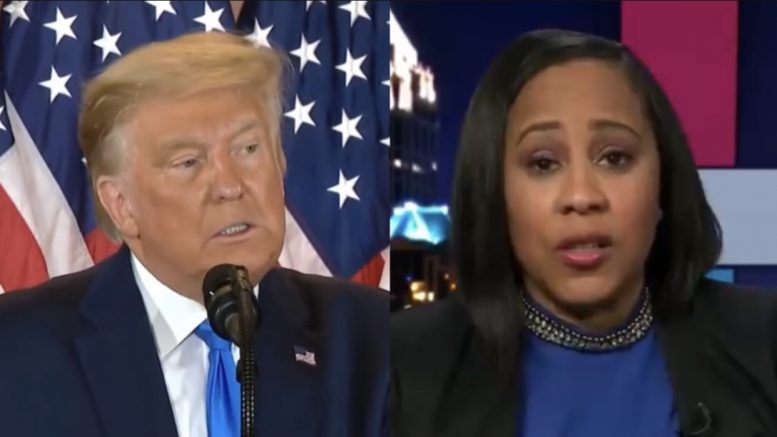The highest court in Georgia rejected Donald Trump’s bid to put Fulton County District Attorney Fani Willis’ election probe to an end. On July 17, the nine justices on the Georgia Supreme Court ruled that Trump and his attorneys failed to make a convincing case to have the election probe shut down.
In a five page decision, the court wrote, “He makes no showing that he has been prevented fair access to the ordinary channels. He is asking this Court to step in and itself decide the motions currently pending in the superior court. This is not the sort of relief that this Court affords, at least absent extraordinary circumstances that Petitioner has not shown are present here.”
Trump’s lawyers claimed that Willis’ probe violated Georgia rules by using a special grand jury to investigate potential crimes that could have occurred during the 2020 election.
Last week, Willis presented her case in the Donald Trump election probe before one of two new grand juries.
A few months ago, Willis made indications that decisions to present charges in the probe could come in August. She requested remote workdays for her staff and asked judges to refrain from in-person hearings during that time.
“I respectfully request that judges not schedule trials and in person hearings during the weeks beginning Monday, August 7 and Monday, August 14,” Willis wrote in the letter.
Willis has pushed back the dates of announcing charges to request more security and to grant immunity deals.
In May 2022, Willis seated a special grand jury for the case that didn’t have the power to indict. However, the special grand jury was able to issue subpoenas, consider testimony from 75 witnesses, and draft a report with recommendations for Willis.
Trump is on record asking former Secretary of State Brad Raffensperger and Gov. Brian Kemp to help overturn the election on separate occasions. He asked Raffensperger during a phone call to help him secure over 11,000 votes, the amount in which he trailed Joe Biden in Georgia. During a recorded call that took place on Jan. 2, 2021, Trump told Raffensperger, “All I want to do is this. I just want to find 11,780 votes, which is one more than we have. Because we won the state.”
Willis is examining if suspects in the case are guilty of criminal solicitation to commit election fraud, making false statements to state and local governmental officials, involvement of violence or threats related to election administration and racketeering.
If Willis chooses to charge Trump with a RICO (Racketeer Influenced and Corrupt Organizations), he could face 20 years of imprisonment.
If indicted or convicted, Trump could still run for or win presidency in 2024. He currently faces 34 felony charges in New York for falsifying business records; he faces 37 felony charges in federal court in Florida for hoarding classified U.S. documents; and he’s being investigated by the Justice Department for the events prior to the Jan. 6 attacks on the U.S. Capitol.
